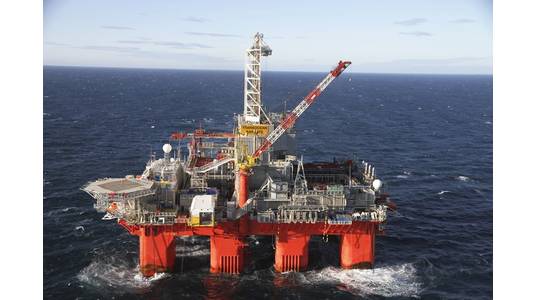
A cursory look at rig, seismic and yard activity in the world is enough to deduce that there’s more happening in the Arctic than Greens tying themselves to seventh-generation drilling units.
A judge may have blocked Alaskan drilling in coastal areas of the Beaufort and Chukchi seas — or the bulk of the US Arctic outer continental shelf — but the Chinese, the French, the Russians and others have gotten on with their arctic expansion, both for oil and for gas.
In Norway, Equinor struck out twice in 2019 drilling the Gjoekasen license in the Barents Sea with the Gjoekasen Deep and Gjoekasen Shallow wells, but the offshore operator plans a third Gjoekasen well, regardless. Well 2 was dry, perhaps not unsurprisingly, after following a drill plan determined by Gjoekasen No. 1, but on board at Gjoekasen is Lundin — finder of arctic oilfields.
Whatever the feelings at partners Lundin, Aker BP and Petoro, all are aware there’s much afoot behind-the-scenes for the Norwegian near-Arctic: for one, gas pipelines are hoped for from a “petro-river” far to the northwest of Hammerfest liquefied natural gas (LNG) facility’s Snohvit gas and condensate field; two, a new gas train is being contemplated at the facility.
Recently, a new pipeline called Polarled was pushed south of the Norwegian Sea gas field, Aasa Hansteed, and the plans of some envision a push for a new pipeline to meet prospective arctic gas. And after a dozen wells led to satellite-like fields near the Johan Castrup oil discovery, where a floating production, storage and offloading unit (FPSO) is planned, other, larger satellites run in a “stream” down through the southeast toward Hammerfest’s large, north-Norwegian gas fields.
And there are other clear signs the Arctic is on-again, at least for Norway (and for Russia, where CNOOC, Total and Shell are invested in Arctic LNG 2 and in the Yamal Nenets area). This year’s annual Awards in Predefined Areas round saw Oslo award a record 90 production licenses, including 48 in the Barents Sea (compared to 14 awarded last year and eight the year before).
Then there’s the also-arctic Norwegian Sea — 37 blocks.
The mature Arctic
What’s more, Oslo has taken to calling the arctic a “mature area”, or an area of “existing or planned infrastructure”. That’s what piqued the interest of 21 oil companies offered operatorships, many of them medium-sized and/or “newbies” (the latter a leap of faith for the Arctic).
For the pure, exploration plays in frontier areas there’s the usual, exploration licensing rounds, and for pinprick arctic drilling, Electromagnetic Geoservices’s Atlantic Guardian has been hired for a multi-client survey that’ll add to existing surveys and data rooms. After 50 years of Norwegian oil and gas, the Arctic is now “well explored”, the Norwegian Oil and Energy Ministry says.
Meanwhile, Russia’s Novatek, too, has expanded its license portfolio near its arctic Yamal projects and, like Equinor, plans a new LNG train. Already, TechnipFMC is the beneficiary of an Arctic LNG 2 engineering, procurement, construction and installation (EPCI) contract. They’ll likely be in the mix late in 2019, when Oslo parliamentarians rubber-stamp Equinor’s chosen concept for new train at the Snohvit Future 2 project.
And Alaska isn’t out-of-it. The Alaskan Department of Natural Resources and the US oil industry have advertised their support for Beaufort Sea drilling, although it seems it’ll take an act of Congress to enact a full cancellation of Obama-era bans (not a mere presidential decree).
For now, ConocoPhillips recently said it was expanding its Alaskan capex by nearly half in 2019 after purchasing “high-value” assets and embarking on appraisal drilling at Narwhal, an onshore development. The company recently announced its quarterly profit of $1.8 billion was up on 20 percent more Alaskan oil production.
So, no one’s leaving the arctic anytime soon.